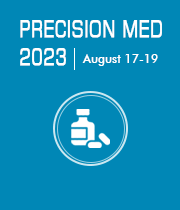Nanotechnology in Personalized Medicine
In today's medical environment, personalised medicine is a significant movement. It tries to shift the focus away from the old practise of prescribing standard doses of standard medications to every patient for a condition and toward targeting the specific drug and dose required based on the patient's physiology. Nanotechnology and personalised medicine are two of the newest areas of biomedical research, as well as two of the most promising technologies for enhancing health care and outcomes. In addition, they are fast convergent in a variety of current and future therapeutic applications. Nanotechnology has a number of benefits for personalised medicine applications, including a size that matches the scale of personalised medicine's molecular substrates, increased sensitivity in detecting and binding with target molecules, and flexibility in the design and features of diagnostics and therapeutics at the nano scale.
- Translational Medicine
- Nanotechnological Tools
- Nanopores
- Nanotubes
- Nanomaterials
- Nano Based Research
- Circulating Biomarkers
- Biomaterials

Bernd Blobel
University of Regensburg, Germany
Roy Gary Beran
University of New South Wales, Australia
Matthias Schwab
University of Tubingen, Germany
Thomas Webster
Interstellar Therapeutics, United States
Boris Tankhilevich
Magtera, Inc., United States
Isabella Friis Jorgensen
University of Copenhagen, Denmark


Title : The use of anti seizure medication therapeutic blood level determination to personalise the treatment of epileptic seizures especially in patients attending the accident and emergency department
Roy Gary Beran, University of New South Wales, Australia
Title : Personalized and precision medicine (PPM) can be established as a unique healthcare model through biodesign-driven and inspired biotech, translational applications. This approach aims to ensure human healthcare, wellness, and biosafety.
Sergey Suchkov, Institute for Biotech & Global Health of RosBioTech and A.I. Evdokimov MGMSU, Russian Federation
Title : Monitoring folds localization in ultra-thin transition metal dichalcogenides using optical harmonic generation
Ahmed Raza Khan, Australian National University, Australia
Title : A systematic review of regulatory approaches for Direct- To- Consumers (DTC) genetic testing
Kavitha Palaniappan, Duke-NUS Medical School, Singapore
Title : Regulatory framework of in vitro diagnostic and artificial intelligence for precision medicine
Pei Ting Sarah Chou, Regulatory Affairs Professionals Society, Taiwan
Title : Unraveling cancer stem cell signatures in circulating tumor cells of metastatic colorectal cancer: Investigating ALDH1A1 and the repurposing potential of disulfiram via scRNA-seq
Nurul Syakima Ab Mutalib, Universiti Kebangsaan Malaysia, Malaysia